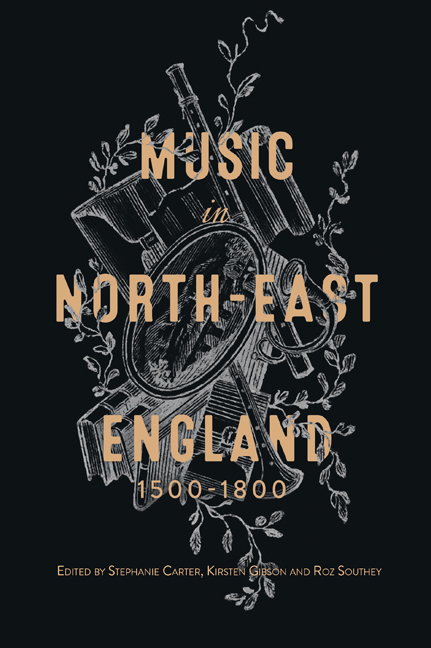3 - The Selection, Acquisition and Performance of Handel’s English Odes and Oratorios in Mid-Eighteenth-Century Durham
Published online by Cambridge University Press: 17 November 2020
Summary
By the middle of the eighteenth century, Handel had gained a reputation as Britain's leading composer. This was partly owing to a change in Handel's compositional output from the 1730s with a gradual move from Italian opera to English oratorio as the staple of his London theatre performances. This new genre of entertainment was generally well received – the works were in English (rather than Italian), incorporated chorus movements modelled on English anthems, and were based on well-known biblical or moral stories, which could often be related to contemporary events. With Handel's growing popularity, his reputation spread even further across the country than it had done when his main occupation had been Italian opera, with complete performances of his English theatre works (oratorios, odes, masques), rather than individual airs, gradually becoming more common outside London. While there is no evidence that Handel ever travelled to the North-East of England, his music, as in other parts of the country, began to receive regular performances there from the late 1740s. At the same time, he began to emerge as what could be described as a national composer. Durham and Newcastle upon Tyne formed two of the main musical hubs in the North of England, with music centring around the life of the cathedral in Durham and commercial concerts in Newcastle. Music in the North-East of England during the eighteenth century has received increased attention since the year 2000, with several studies by Roz Southey and more recently a dissertation by Simon D.I. Fleming. As a result, performances of Handel's works in the region have now been well documented. However, as previous research has primarily focused on establishing a broad picture of musical activity in Durham, Newcastle and elsewhere in the North, there has been no closer assessment of Handel's music in the North-East during the mid-eighteenth century beyond the dates of performances and its position within concert repertoire. This chapter therefore considers three principal questions: why particular works by Handel were selected for performance; how they were performed (for example, extracts or reduced scoring); and how performing materials were sourced. The chapter concentrates primarily on Durham, where Handel's works proved especially popular in the mid-eighteenth century with the performance of complete odes and oratorios.
- Type
- Chapter
- Information
- Music in North-East England, 1500–1800 , pp. 54 - 69Publisher: Boydell & BrewerPrint publication year: 2020



